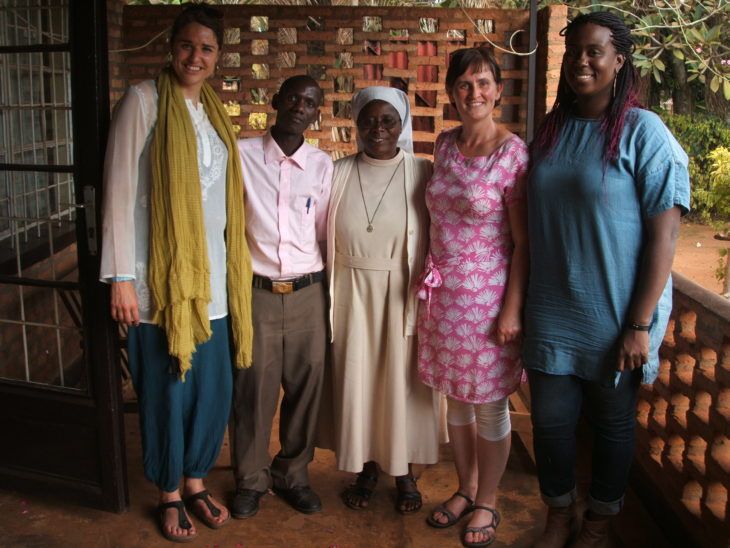Tubakunde Evaluation visit – end of week one
Rwanda
- Children
- Disability
- Activities

Muraho from Rwanda! Una and I have been here just a week and we’ve already travelled more than 300km and have visited five different day centres for child and young people with learning and physical disabilities across Rwanda. For both of us, it is out first visit to the ‘land of a thousand hills’. As well as visiting the centres we’ve also had the chance to sample some of the local cuisine, have learnt a handful of key phrases in Kinyarwandan and have got a feel for the distinctive Rwandan landscape – the rolling hills, the glistening lakes, the deep red earth and abundant green banana trees…
Let me just give some context to our visit. In October last year, six members of the Tubakunde network, a Rwandan organisation working with care settings for children and adults with disabilities, travelled to Cyangugu in the south west of the country to take part in a two-day training programme led by two local partners from this area. This was a pilot project, an opportunity for the local partners to share the music as therapy skills they have developed since taking part in the very first six-week project in Rwanda in 2010, led by music therapists Nicky Haire and Caroline Anderson.
In the two centres to take part in the original training project six years ago, music as therapy programmes are now well-established and the local partners have developed into highly skilled therapeutic music practitioners. For the members attending the two-day training in October, this was potentially their very first encounter with music as therapy techniques. The hope was that these members would each return to their different settings equipped with
the basic skills to begin running their own therapeutic music sessions.
We are half way through the two weeks we are spending in Rwanda during which will be visiting each of the six centres that participated in the training last year. We want to see how the staff members have been getting on since October, indeed whether they have been able to deliver music as therapy sessions in their individuals settings, and aim to identify any areas for further support and training. We will also be evaluating the overall impact and effectiveness of the two-day training model. Lots to do in only two weeks!
We’ve already been lucky enough to travel the full breadth of the country (Rwanda is only about the size of Wales but still a lot of travel in only a few days!). We arrived in Kigali, the capital, on Sunday afternoon and made our first visit to a centre in Ngoma, the Eastern province of Rwanda, on Monday. On Tuesday we visited two centres in the Kigali area and on Wednesday morning continued on to a centre in Muhanga, around 50km west of Kigali. The main roads in Rwanda are pretty good but as you travel further out they become increasingly bumpy; when we arrived at the centre in Komera, situated in the far west of the country, on Wednesday afternoon, we were asked “Did you enjoy your African massage?”!
We’ve really appreciated the really warm welcome we have received in all of the five centres we’ve visited so far. In some, we’ve even been greeted by a traditional Rwandan song and drumming, quite a treat! We are impressed that some of the centres already have music as therapy sessions embedded in their timetables and that some of the staff members are already showing their potential as therapeutic music practitioners, which is exciting to see. We’ve also had some useful discussions about what further support they’d ideally like.
We’re now in Kamembe, in the south west of Rwanda, the district where the training took place last year. Kamembe is situated on the edge of the picturesque lake Kivu, the largest of Rwanda’s 23 lakes. It is peaceful and beautiful here and we are enjoying having a weekend to recuperate, to catch up on work and to generally reflect on our experiences from our fascinating and full first week here.
At the beginning of next week we are going to visit both Ngwino Nawe and Urugwiro, the two centres where the local partners who delivered the training last year are based. We hope to find out more about how the experience was for them. We will also visit the sixth and final centre that took part in the two-day training before returning to Kigali towards the end of the week.
Isabel and Una
Related projects
-
Tabakunde Exchange evaluation 2016
Rwanda
- Children
- Disability
- Young people
